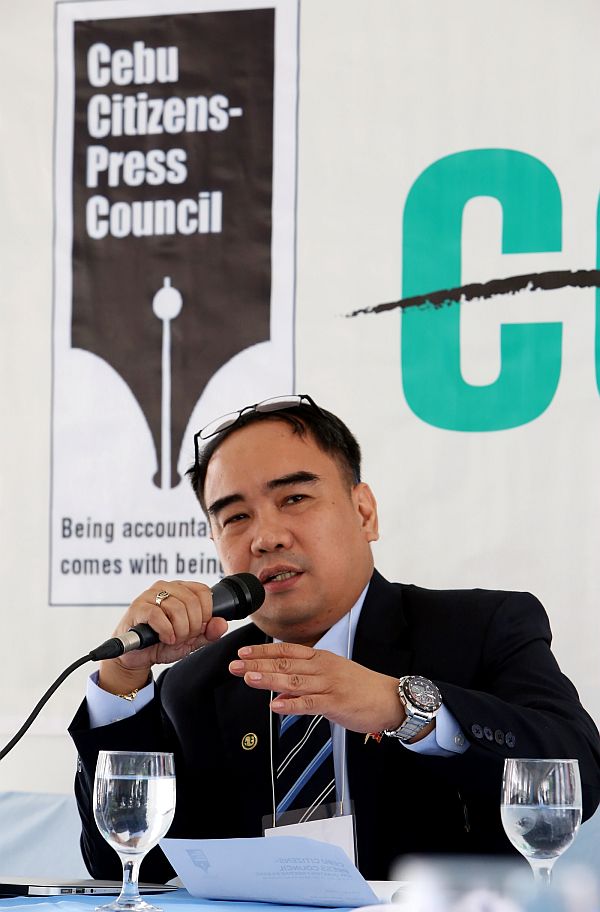
Egco
As social media gains greater recognition as a legitimate source of information in this age of the proliferation of “fake news,” a journalist-turned-government official urged the traditional media practitioners to aggressively campaign for the truth.
Undersecretary Joel Egco, executive director of the Presidential Task Force on Media Security, said it is the responsibility of the mainstream media to provide factual and balanced news to combat fake ones on social media.
“Social media is becoming the new mainstream, even with its vulnerabilities and weaknesses. While it is becoming stronger, traditional media should become more responsible. That is our only hope,” Egco told reporters during the 47th quarterly en banc meeting of the Cebu Citizens-Press Council (CCPC) held at the Mivesa Garden Residences in Barangay Lahug, Cebu City, on Thursday afternoon.
Egco was keynote speaker during the assembly in lieu of Communications Secretary Martin Andanar who opted to stay in Manila to monitor progress of ongoing rallies held in commemoration of the 45th anniversary of Martial Law.
The CCPC assembly is one of the activities during the Cebu Press Freedom Week celebration and is participated in by leaders of the different tri-media organizations in Cebu.
Egco said that fake news is a global problem that is not endemic only to the Philippines.
However, he said, it is sad that the country does not have an entity or institution that is competent to detect fake news.
The Philippine government, he said, is looking at the possibility of tapping assistance from foreign countries like Japan and those coming from other Association of Southeast Asian Nations (Asean) region to come up with ways to combat fake news.
A regional approach could provide a crucial first step in the war against fake news. But Egco admitted that the Philippines still has “a long way to go” in this kind of a fight.
Until a more comprehensive solution is identified, Egco is urging the traditional media to pursue its responsibility as purveyors of truth despite the demonization that the sector is facing today, including tags such as “presstitutes” or “bayaran (paid)” that is given to reporters who write stories that would put the Duterte administration in a bad light.
Having been part of private media entities for more than two decades before he joined the government, Egco said traditional media practitioners should brush these accusations off.
“You just do what you’re supposed to do. I am with government now, but if we are being called by those names, that’s okay. We should not allow it to affect us,” he said.
Egco started writing for a community newspaper in Nueva Ecija in 1993 and served as the assignments editor and chief of reporters at Manila Times before resigning in 2016 to join the government.
He is also the immediate past president of the Philippine Press Club.
The government has been trying to craft a social media policy, to the point of having entertainer Mocha Uson appointed as assistant secretary for social media matters under the Presidential Communications Operations Office (PCOO) headed by Andanar.
The office also earlier drafted an interim social media policy, proposing to accredit bloggers over 18 years old and with more than 5,000 to be allowed to cover presidential events.
This policy has been submitted to the Malacañang Press Corps, the group of reporters covering the President, for evaluation of its members.
While this is the case, Egco said he still places a high premium on information coming from the traditional media.
“There should be a level of accountability and responsibility. That is the value of traditional media,” he said.
He added that in traditional media, content is edited as well as written in a way that abides by certain rules and ethics, which he added sets the group apart from social media bloggers.
The official clarified that blogging, per se, is not bad since voicing out opinions on different platforms is a right enjoyed by citizens allowed by the freedom of speech and information.